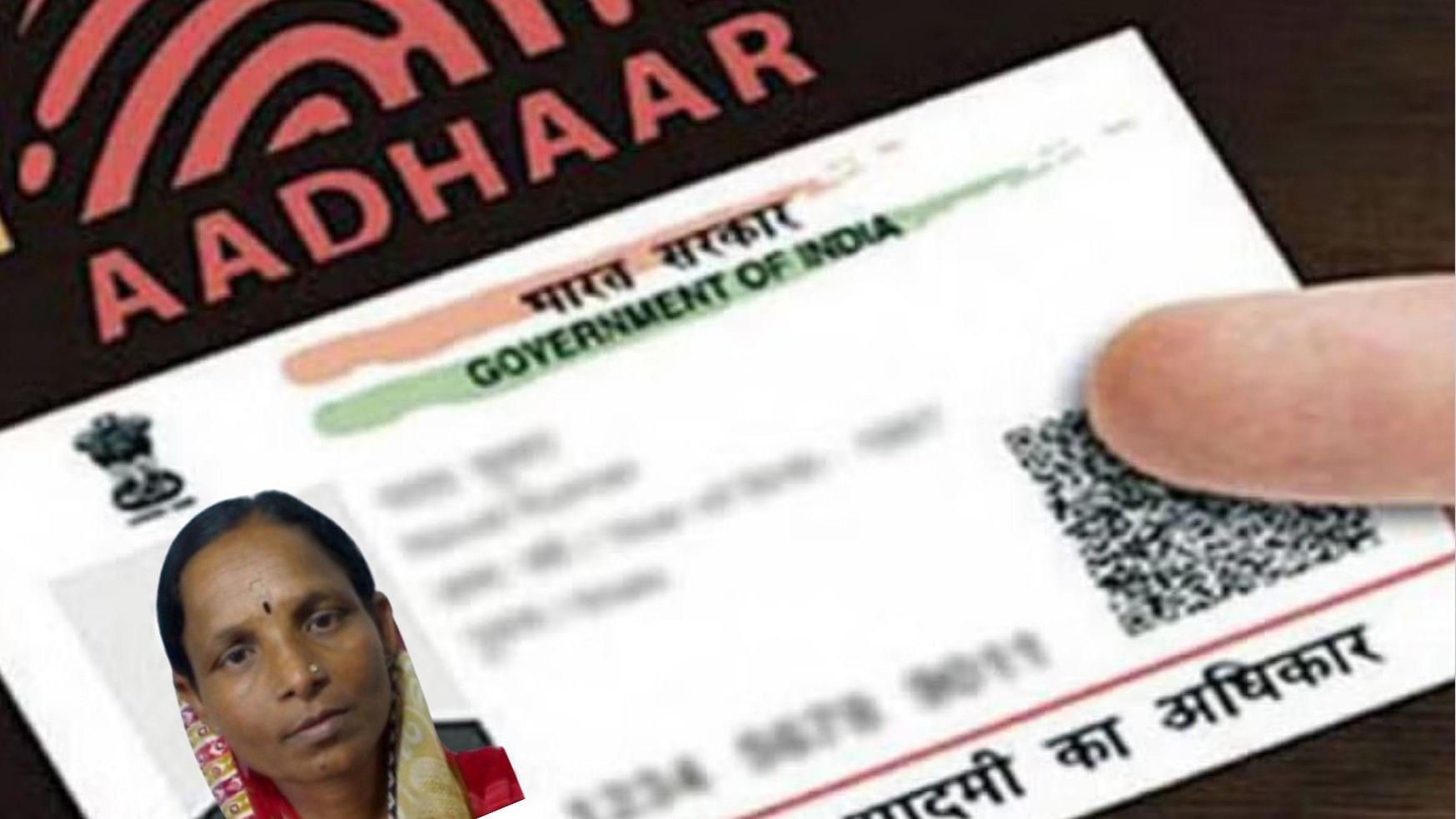
Collage: Ranjana Sonawane; Aadhaar card.
Credit: UIDAI, DH photo
In Tembhli village, Shahada taluka, Maharashtra, resides Ranjana Sonawane, known as the 'Aadhaar card woman.' Her fame stems from being the first recipient of the Aadhaar card on September 29, 2010, an occasion attended by then-Prime Minister Manmohan Singh and Congress President Sonia Gandhi.
However, despite the initial spotlight, a report published in The Hindu on Wednesday notes that life for Ranjana has largely remained unchanged in the past fourteen years.
Tembhli village, located 43 km from Nandurbar town and 416 km from Mumbai, lacks essential amenities such as electricity and sanitation facilities. Ranjana, belonging to the Bhil tribe, struggles to light her home with a rented power connection from her neighbour, paying Rs 100 per month. The report notes that most villagers share similar hardships, living without access to toilets.
Ranjana earns a meager income by stitching clothes, supporting her family, including her husband and two sons. Her eldest son, Umesh, is pursuing a postgraduate degree in Commerce, while her youngest son aspires to join the Maharashtra Police. She told The Hindu that despite her efforts, financial constraints force her children to seek odd jobs to make ends meet.
Reflecting on the days preceding the Aadhaar card launch, Ranjana told the publication that there was a sense of optimism and anticipation within the village. However, to say that what followed was disappointing would be an understatement.
“Suddenly our village got concrete roads, huts were painted, electric meters were installed in our houses, and we were told that the monthly bill would be Rs 15. After the event, from next month onwards, the electricity bill was Rs 3,000 which was impossible for us to afford so the electricity department took away the meters,” the report quoted her as saying.
Despite repeated visits to government offices and appeals for support, Ranjana remains disillusioned with the system's indifference.
“A team of five came from Mumbai and educated us about the Aadhaar card, said that the objective of providing a unique 12-digit identity number was to ensure better delivery of social security schemes. We were then taken to a nearby factory where they took a small test, asked us about Aadhaar card and its purpose. We were elated. We thought this entire programme was to pull us all out of deprivation, and my sons will get free education and jobs when they grow up. But it was all a false show for them (politicians) to garner likes and publicity out of our poverty and for the media houses to gain ratings for their news channels,” she told the publication.
“What is the big deal about being the first person to receive Aadhaar card? I do not see it as an achievement. It is not like I won a lottery. The tribal ministers in power did nothing for the tribal community who are the majority here, but they visit without any guilt seeking votes,” Ranjana lamented.